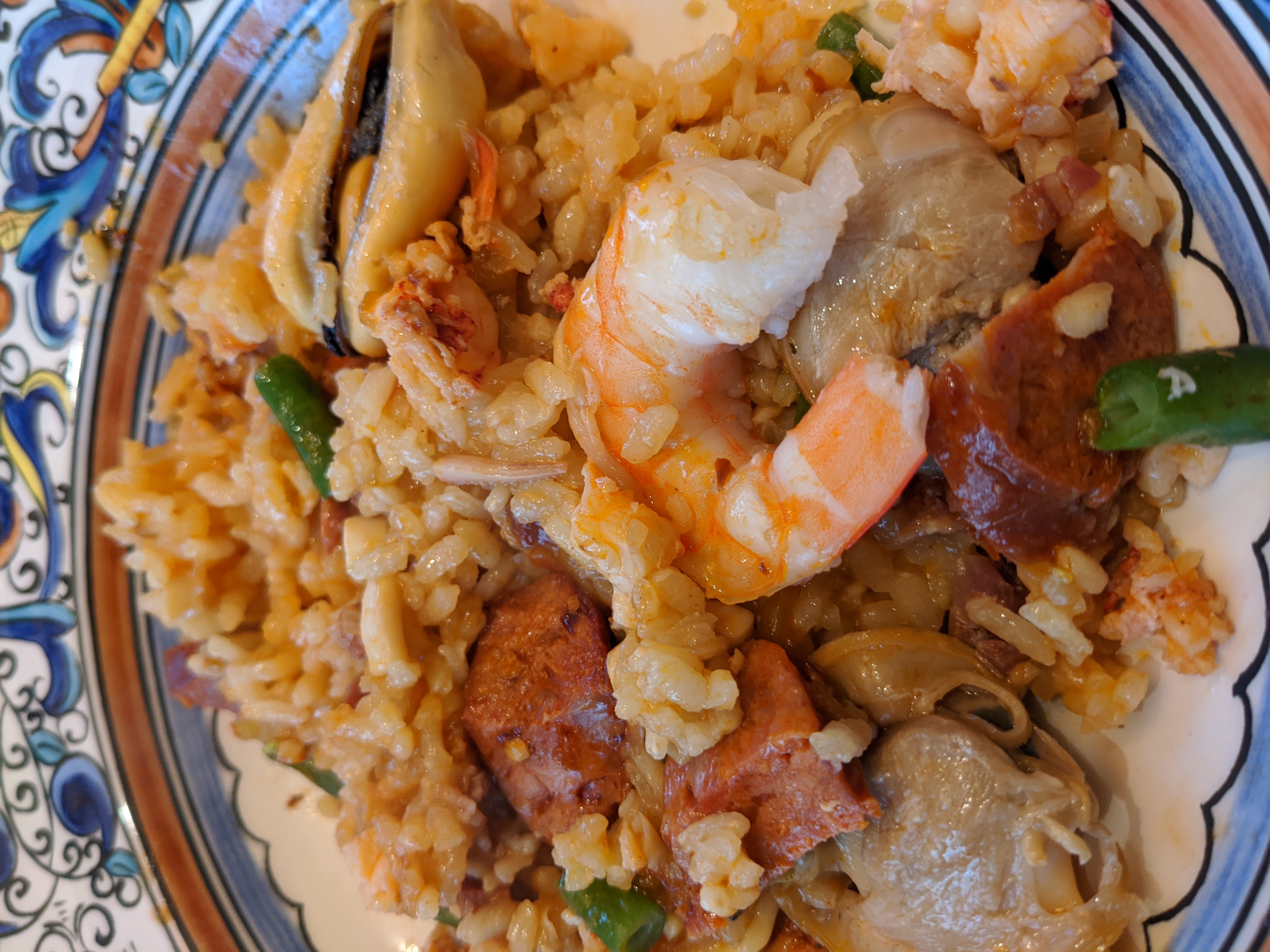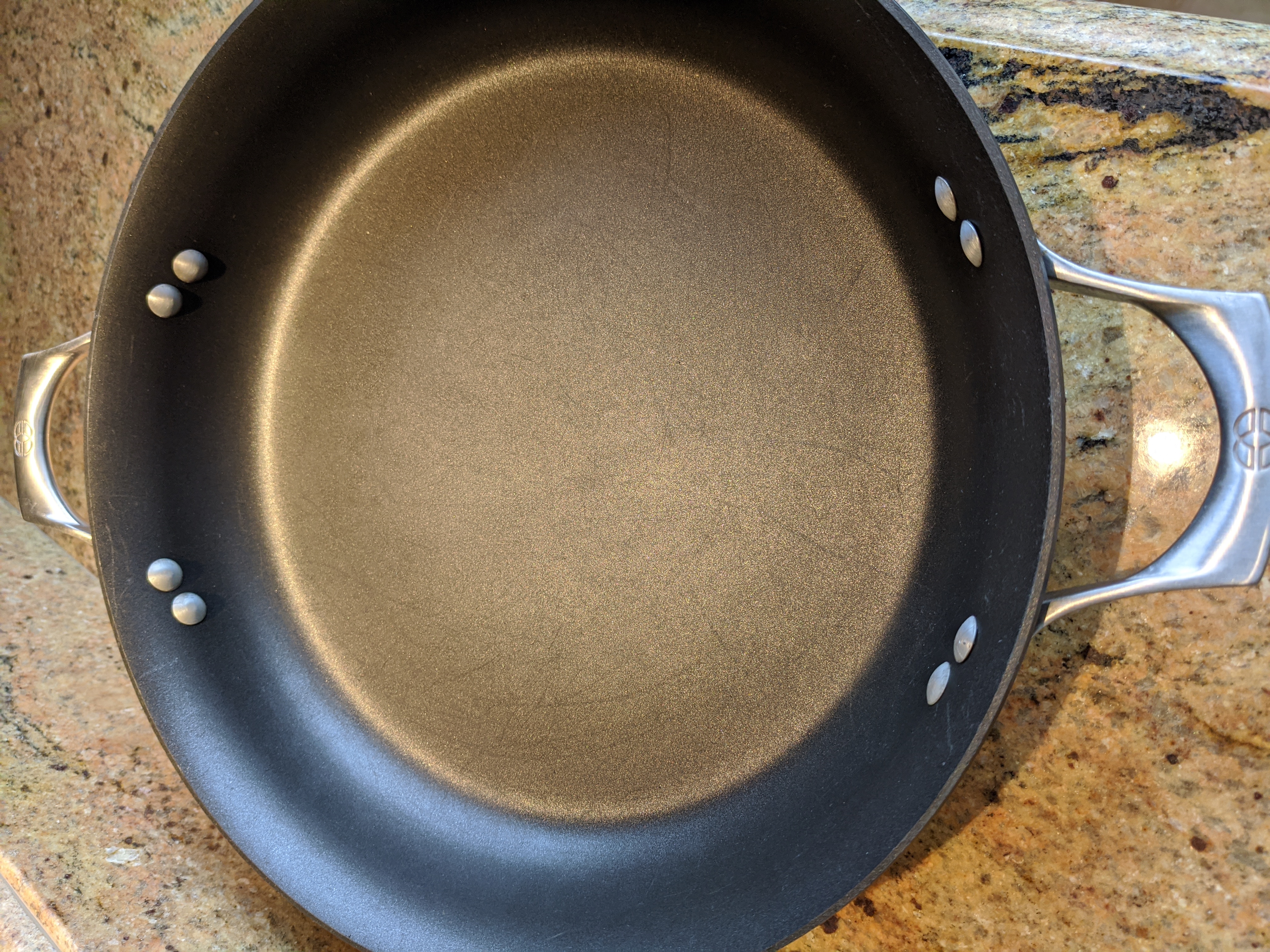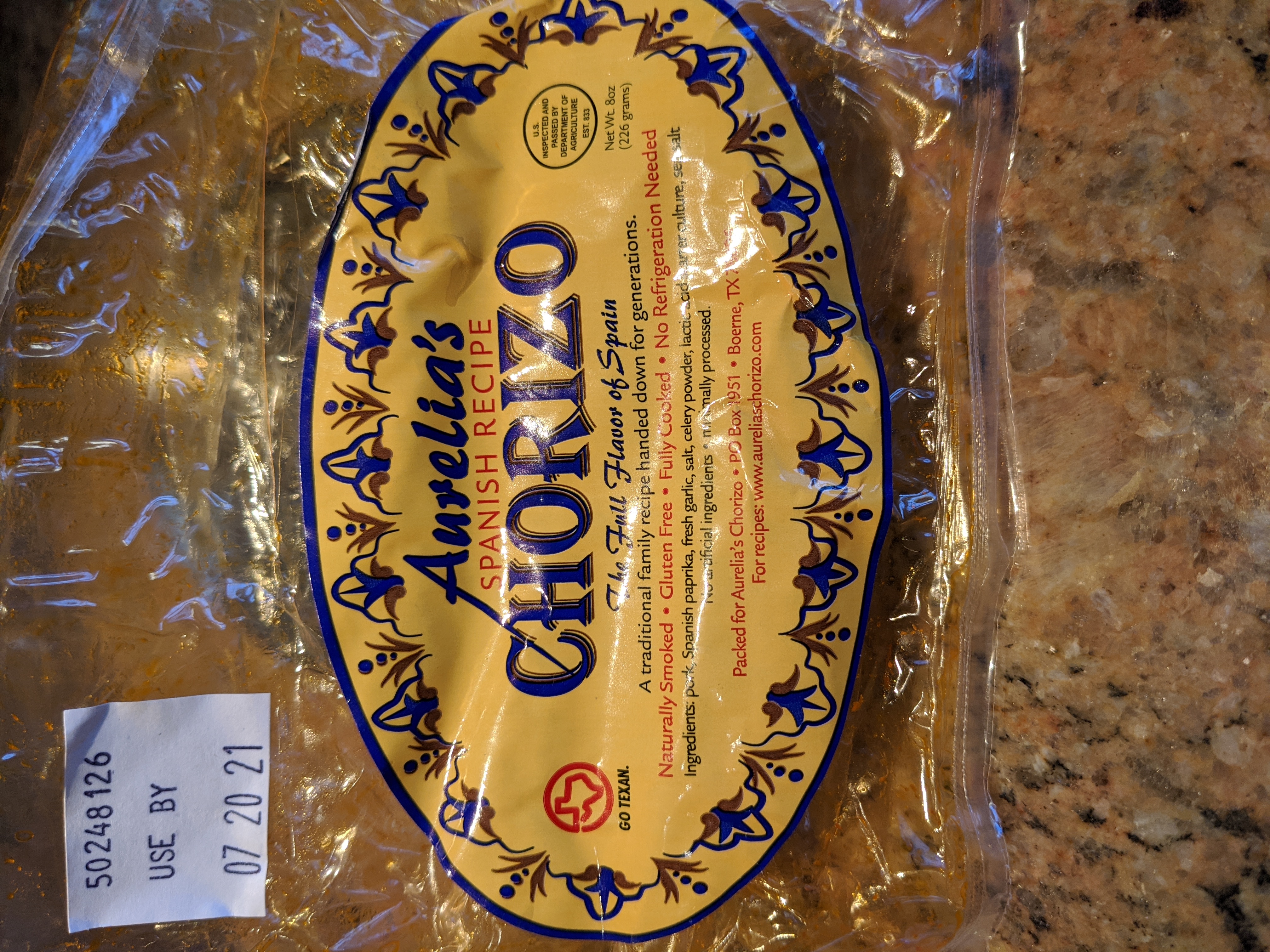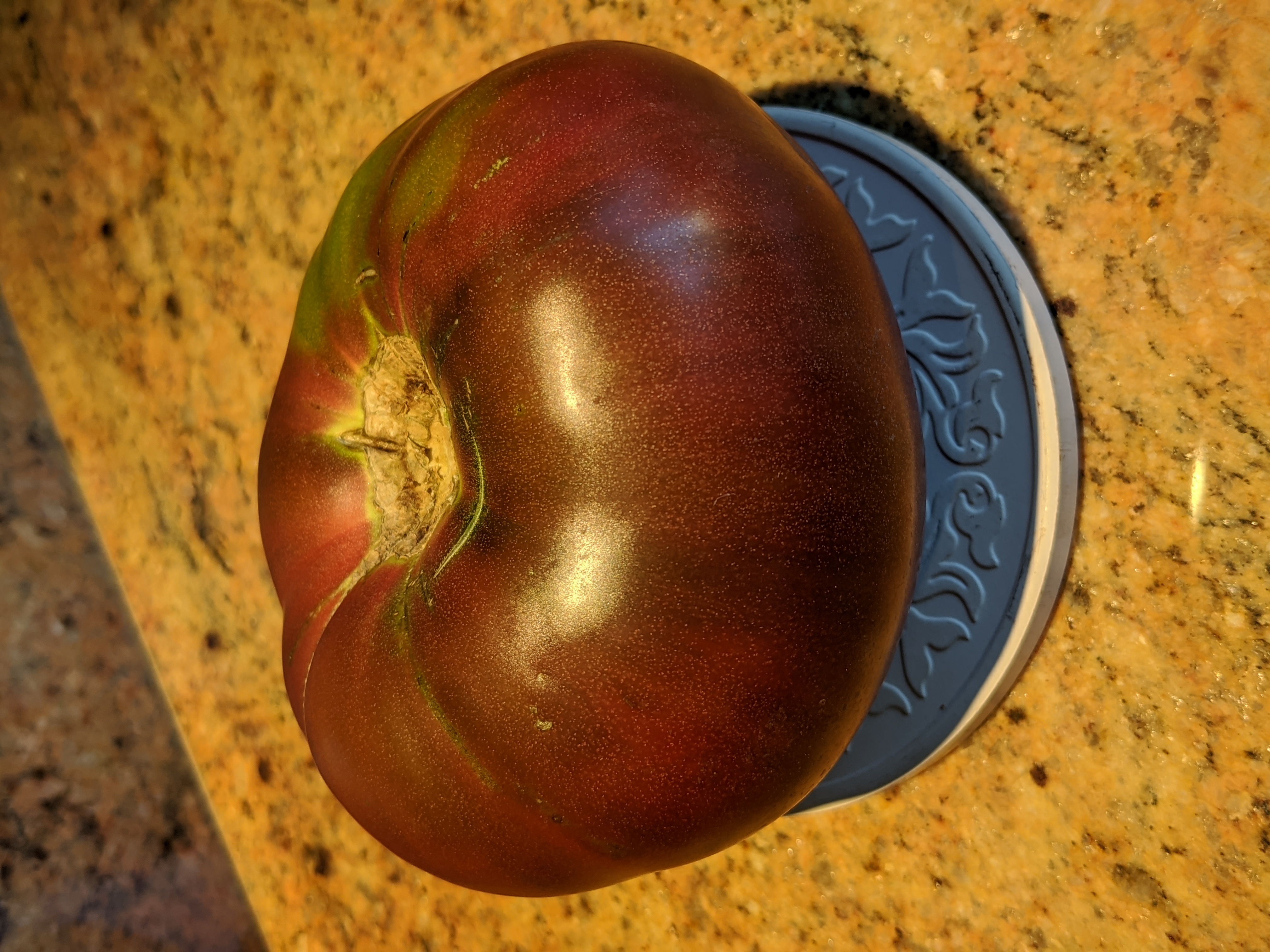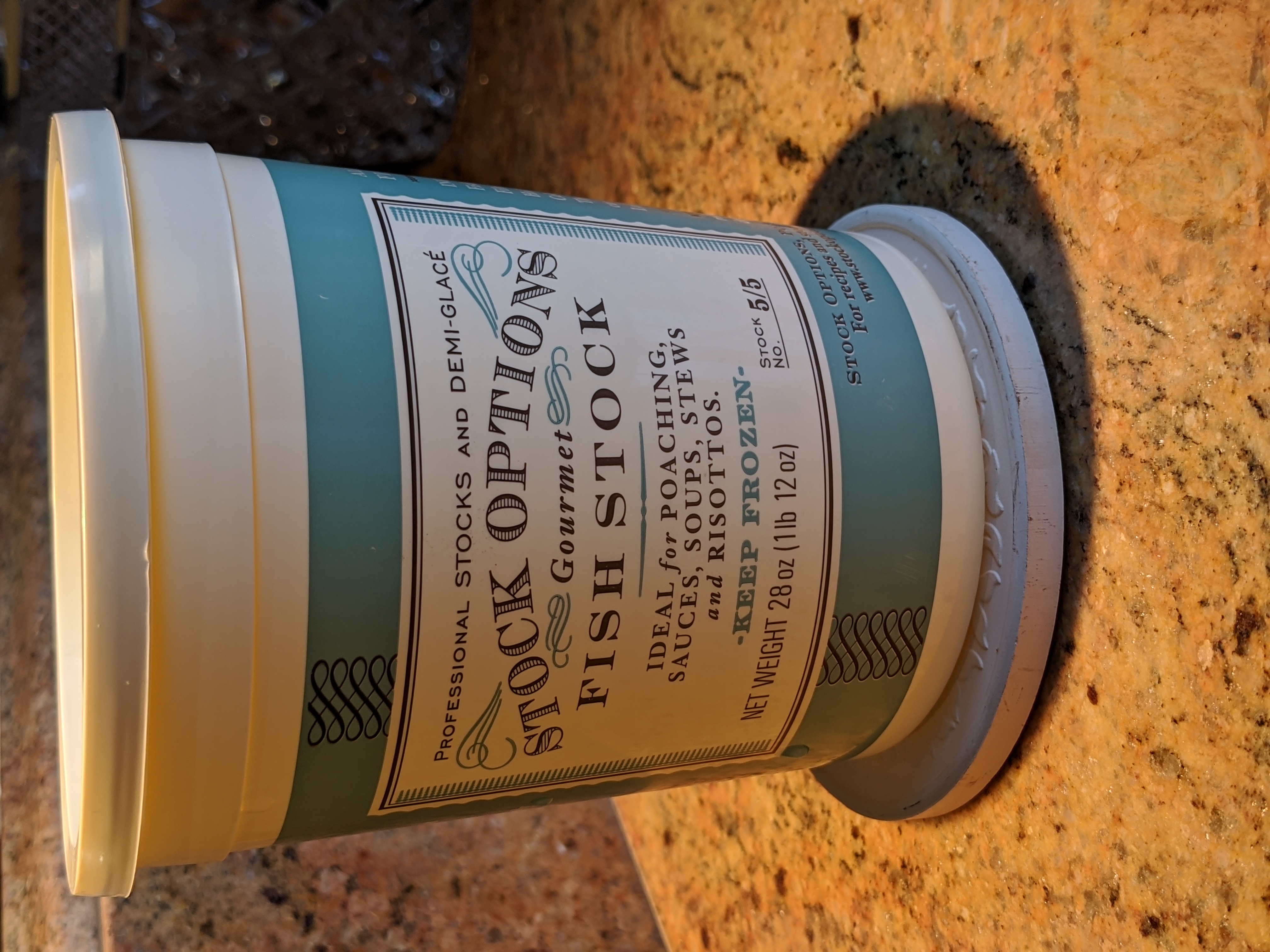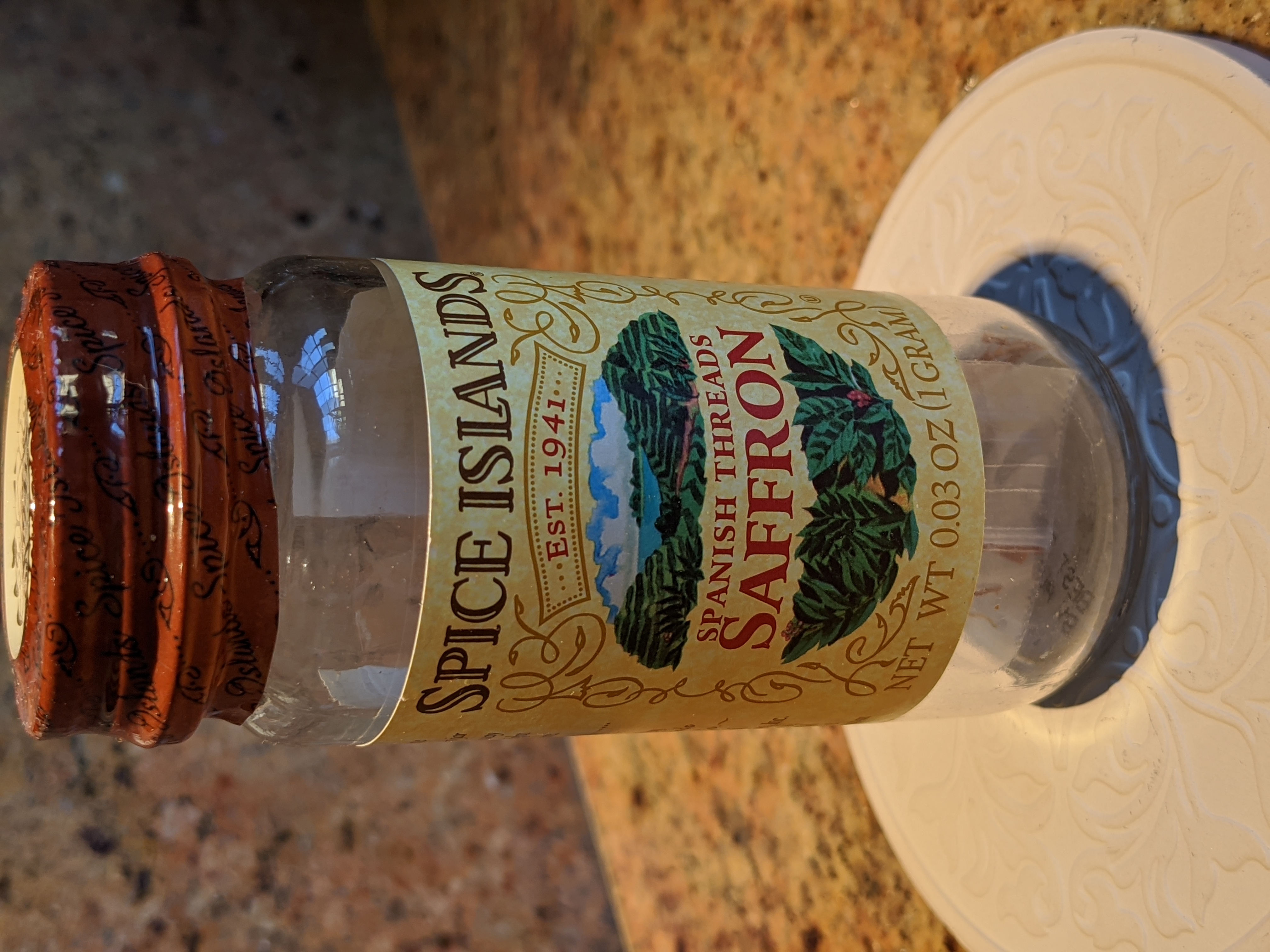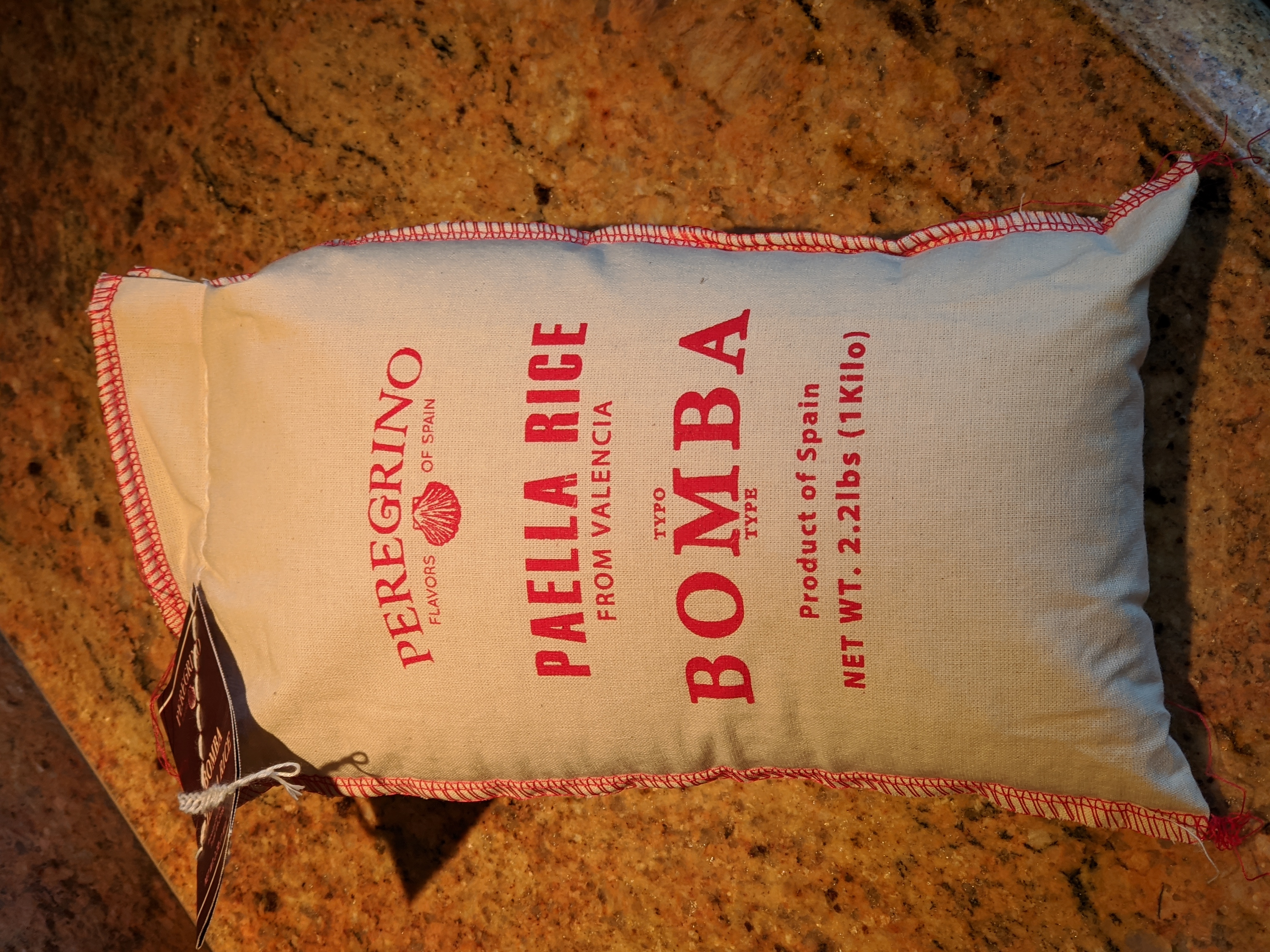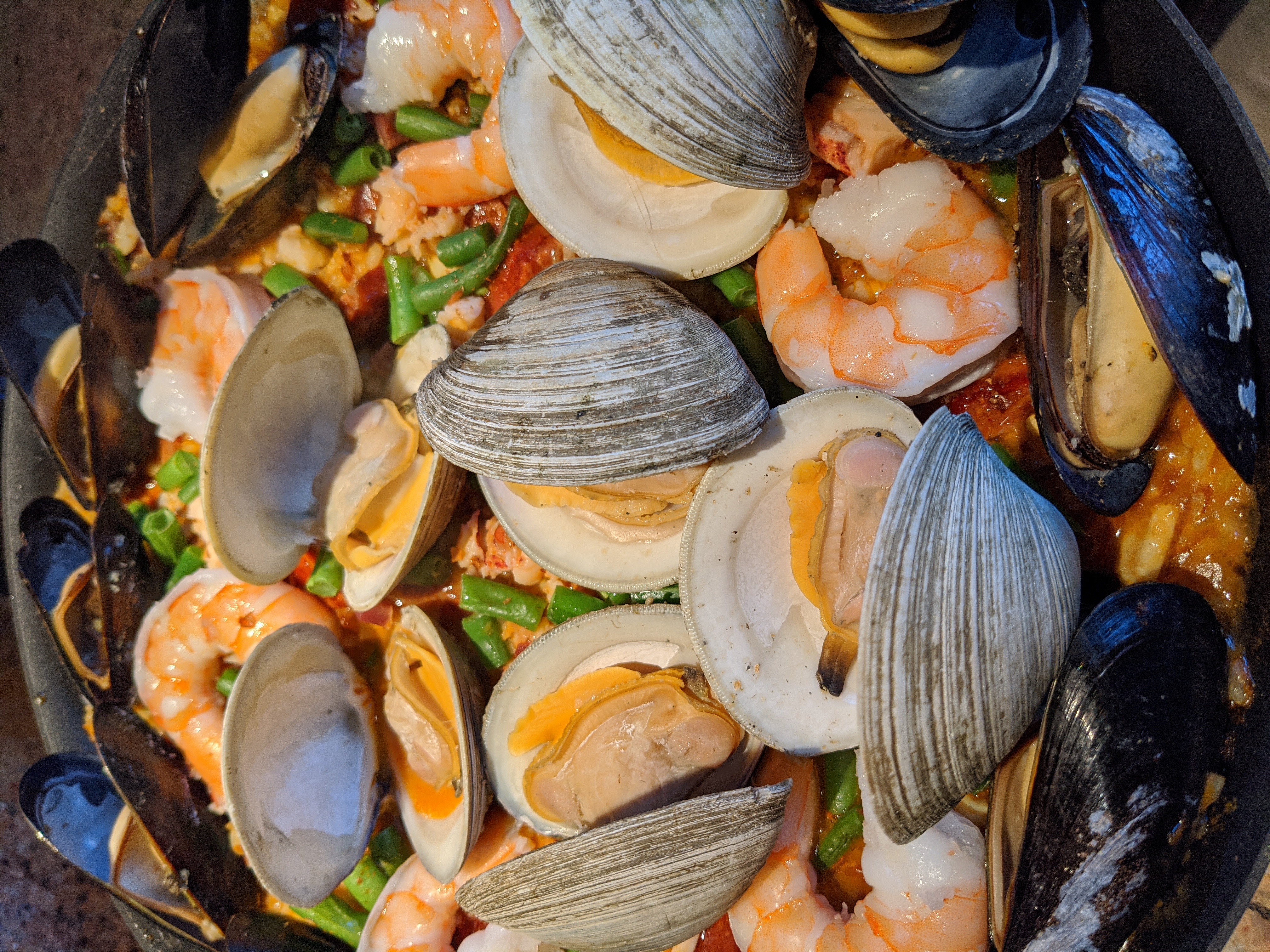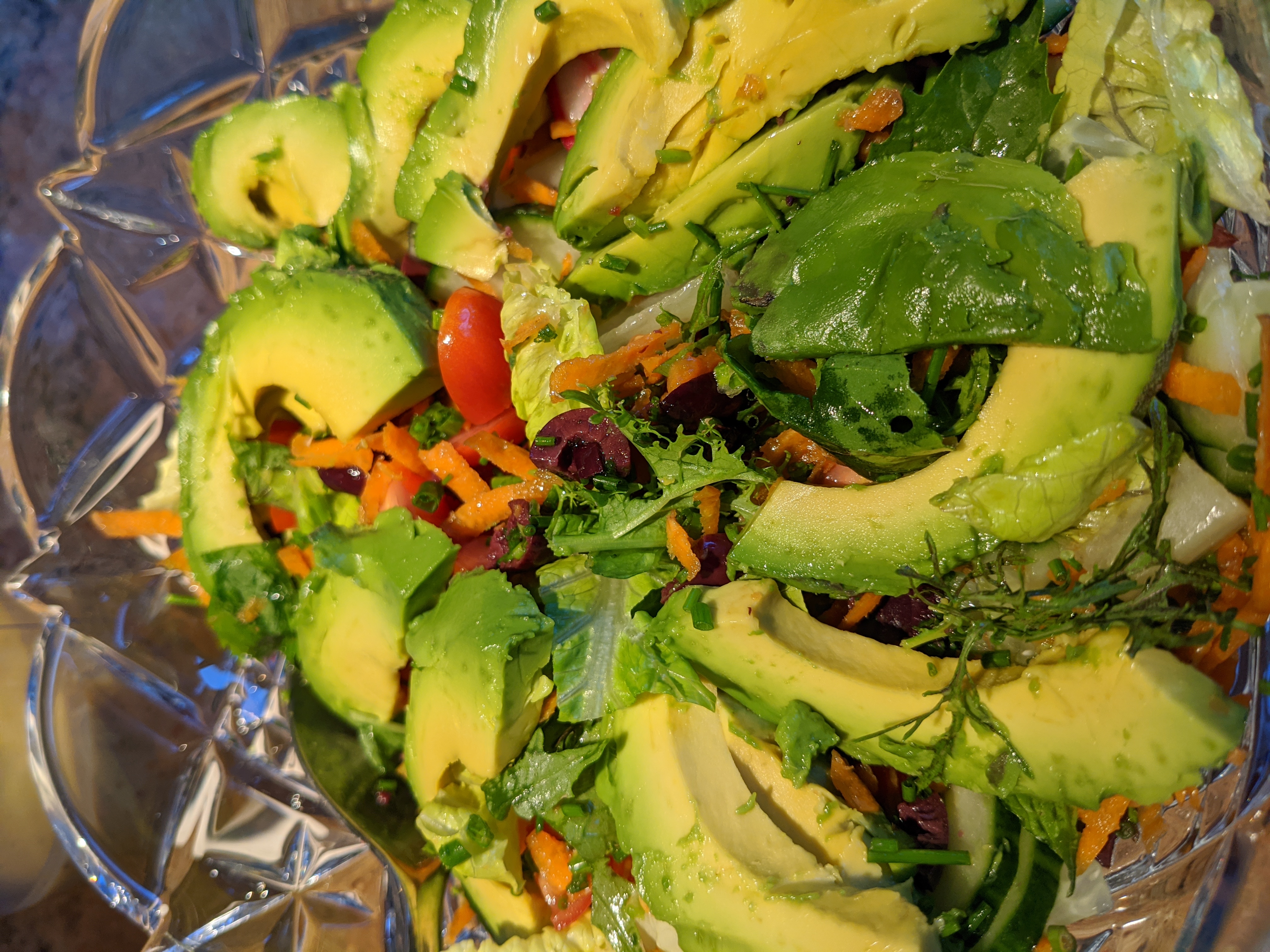Paella Mixta with Seafood, Ham, and Chorizo
Description
We love seafood and we fell in love with paella years ago. Paella is one of the best-known dishes in Spanish cuisine. Paella takes its name from the wide, shallow traditional pan used to cook the dish on an open fire. Paella means "frying pan" in Valencian – the regional language of Valencia, Spain. Paella Mixta (mixed paella) combines meat with seafood and vegetables (and sometimes beans) with the traditional rice. We enjoy this paella which has loads of seafood!
At a Glance
Equipment
It is important to have either a paella pan, or a very large and shallow sauté pan:
Ingredients
¼ cup of Extra-virgin Olive Oil
6 ounces of Spanish Chorizo (2 links), cut length-wise and then chopped at a diagonal into approximately ½” to 1” pieces
⅓ cup of Serrano Ham, chopped into ¼” - ½” cubes
1 large Onion, finely chopped
3 cloves of Garlic, minced
1 large Tomato, peeled and cut into ¼” - ½” chunks -- we grow our tomatoes so we used one of our beautiful heirloom tomatoes:
3 cups of Seafood Stock
1 cup of dry White Wine
1 cup of Green Beans cut into 1-inch pieces, and steamed or blanched until cooked “al dente”
1 large pinch of Spanish Saffron Threads
½ teaspoon of Paprika
2 cups of Bomba Spanish Rice
½ pound of Squid, including the tentacles and tubes, cleaned and sliced into ¼-inch pieces
12 fresh Mussels, debearded and cleaned – still in the shell
6 fresh Clams, cleaned -- still in the shell
6 Jumbo Shrimp, precooked and deveined
2 baby Lobster Tails (total of about 4-6 ounces), in their shells
½ teaspoon of Red Pepper Flakes (optional)
1 Lemon, sliced into wedges (optional)
Directions
In a large saucepan, heat the seafood stock and the white wine. Clean the outside shells of the lobsters by scrubbing them completely, and then add them to the saucepan. Bring it to a boil. Once the lobster is cooked, and it changes color, remove them from the pan, which will take around 5 minutes after the water is boiling. Pull the lobster out of the saucepan and set it aside to cool. Turn the heat down and let the seafood stock and wine continue over a medium low heat until it is used. Put your paella pan or large sauté pan on the stove and heat it over a medium-high heat. Add the olive oil and when it is hot, then add the onion and the garlic. Once the onions and garlic are translucent, add the serrano ham and the tomato. Stir and continue cooking them until the tomato is breaking down and becoming almost a tomato sauce. Add the paprika and the saffron and stir it all together. Once the paprika and saffron are integrated into the tomato mixture, add the squid. Continue to stir the mixture. Now add the rice, and let it cook -- spreading the rice around the pan so it is in an even layer. Now gently pour the seafood stock and wine mixture over the rice and add the red pepper flakes (optional). Gently shake the pan to make sure that there is an even layer of rice on the bottom of the pan. Do not stir the rice again. Now take the lobster tails out of the shell and chop the lobster meat into ½-inch chunks. Add the lobster meat to the rice by laying it on top of the rice – do not stir. Add the chorizo slices on top and slightly nestle them into the rice but do this gently.
In a sauté pan with a tight-fitting lid, add about 1 inch of water. Bring the water to a boil and add the mussels and clams in a single layer. Cover with the lid and steam the mussels and clams for a few minutes until the shells open. Once the shells open, remove them from the pan. Throw out any mussels or clams that do not open. Once the rice has absorbed the liquid, you will start to hear a bit of cracking or hissing. This is when your socarrat is beginning to form at the base of the paella; you can even turn up the heat a bit to make sure you get a tasty-crispy socarrat, but be careful not to burn it. Do not stir the rice; however, add the green beans and the shrimp on top of the rice. Cook for 3-5 more minutes. Remove the rice from heat and gently place the mussels and clams on top. Place some foil on top and let it all rest for 5-10 minutes. Then serve with the lemon wedges if you desire.
Serving Suggestion:
We serve it in the pan we cook the paella in, and we like to make sure everyone gets a bit of the socarrat.


